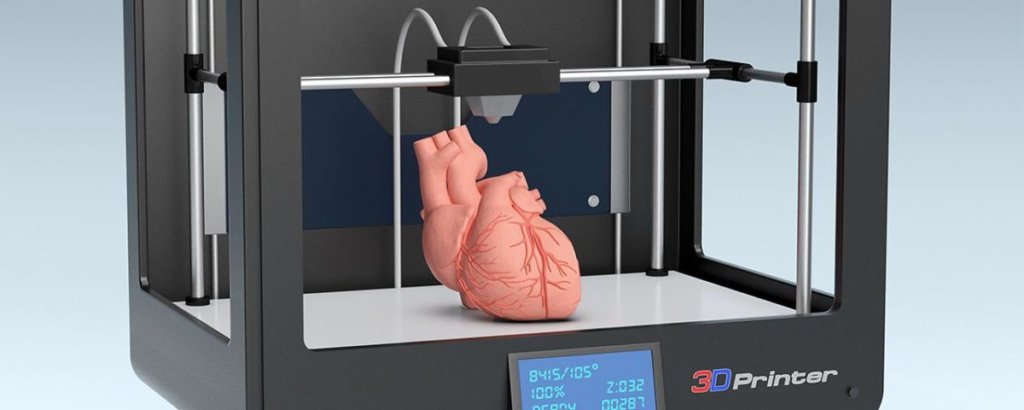In this edition of our Technology and Innovation Tuesday (#TIT) series, we take a look at technologies of the future that are under research and development.
Whoever thought smartphones will be integral parts of human lives two decades ago? There have been many tech inventions and creations since the year 2000 that have revolutionized the daily lives of people in all sectors including health, education, finance, family and many others.
It is important to note that many projects are being churned out on a daily basis to dare the status quo and develop technologies that will improve lives.
We highlight a few that are being developed around the world.

Bionic Lenses
The Bionic Lens is an intraocular lens, a group of lenses which are surgically inserted into a patient’s eye, usually after cataract removal, to restore sight. Now patented worldwide, the Bionic Lens is designed to replace the eye’s natural lens, before cataract development, a refractive procedure currently known as refractive lens exchange (RLE).
Robot Exoskeletons will be used to help paralyzed people walk – 2021
Robot Exoskeleton is a wearable mobile machine that is powered by a system of electric motors, pneumatics, levers, hydraulics, or a combination of technologies that allow for limb movement with increased strength and endurance.

The first space hotel – “for the rich”
The world’s first luxury space hotel, Aurora Station, is being developed by US-based space technology start-up Orion Span. The fully modular space station will host six people at a time, including two crew members, for 12-day trips of space travel. It plans to welcome its first guests in 2022.

Solar-powered commercial aeroplanes
It took 505 days, 26,000 miles (42,000 km) at an average speed of about 45 mph (70 kph) for pilots Bertrand Piccard and Andre Borschberg to successfully fly the Solar Impulse 2 aircraft around the world in 2016. It is the first-ever aircraft to use only the power of the Sun. Solar Impulse 2 is a solar-powered aircraft equipped with more than 17,000 solar cells that weighs only 2.4 tons with a wingspan of 235 ft (72 m). Commercial solar-powered aircrafts are being developed.

Brain implants to help restore lost memories
In just four years, the experimental research wing of the US military, named DARPA, plans to market a medical device that can recover lost memories. Intended for soldiers suffering from brain injury as a result of combat, the device will also work on other neurological disorders like epilepsy and Parkinson’s.

Male birth control pill
One of the latest experimental candidates for a male birth control drug is a compound that would be taken much like the daily birth control pill available for women. A pilot study this year suggests that the compound called dimethandrolone undecanoate (DMAU) can be safe and effective in human test subjects.

Wireless wifi charging for all devices
Most technology companies have patented wifi charging systems to enable devices to be charged without physically plugging them.

3D printed human organs
Scientists in Switzerland have made a 3D printer capable of using “living ink”. It is a blend of several ingredients: a sugar-containing hydrogel base, which forms the structure of the ink; bacteria, which is the living component; and a culture medium for keeping the bacteria alive.
Organovo is a US company working towards this aim. More immediately, it is aiming to produce facsimiles of human tissue for use in clinical and cosmetic testing. L’Oréal is already using its technology.

Robot Bees will be introduced to help pollinate crops
Walmart has just filed a patent for autonomous, robot bees. It covers “pollination drones.” These tiny robots could act just like bees, pollinating crops autonomously.
The robot bees would operate using sensors and cameras to help them navigate to crops. Flying around autonomously, these drones could potentially pollinate as effectively as the real thing.

Smartphones will be able to detect diseases using breathalyzer technology
Noushin Nasiri, a material engineer at the University of Technology Sydney, is trying to develop what would be the world’s smallest sensor for detecting disease in a person’s breath.
Using nanotechnology, she’s fabricating the “science behind a dog’s nose” into a rectangular disk that one day might be able to slot into your smartphone, analyse your breath and tell you if it detects an illness.

Mars One will send 100 humans to Mars
Mars One is a small private Dutch organization that proposed in 2012 to land the first humans on Mars and leave them there to establish a permanent human colony in the coming decades.
100 remaining candidates for the controversial one-way trip to undergo ‘intense’ testing. Mars One aims to create a permanent human colony on Mars in 2027; Earlier this year it cut its list of 200,000 candidates to just 100 people.










